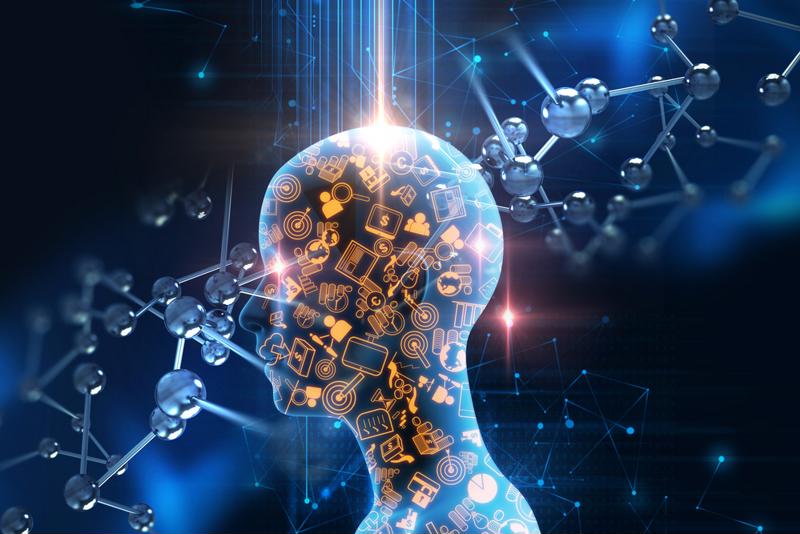Artificial intelligence is well known for its prodigious ability to learn and adapt based on that knowledge. AI has a way of mimicking human intelligence, which allows it to apply reason to various situations, much like we would. Because of these incredible and groundbreaking capabilities, the technology has been employed for thousands of different tasks across many industries — just one example being cybersecurity.
That said, AI has helped us accomplish a lot of good in the cybersecurity space. But, like most things, there is a list of disadvantages and adverse circumstances that come neatly packaged alongside all of the positives. So, we've compiled an equitable lineup of both the pros and cons of using artificial intelligence technology for cybersecurity to give you a better idea of what organizations are already — effectively — using it for, as well as some points of contention where there is still room for improvement.
Pros:
AI can process incredible amounts of data
While artificial intelligence offers an array of positives in regard to the automation of processes, collecting a large amount of data is among the most beneficial. Besides the sheer amount of data that AI is able to gather and handle, it does so with supreme efficiency. This means that it helps our cybersecurity teams become better at noticing, catching, preventing and remediating cyber threats. According to IBM, without the help of technology, the same job would take approximately 287 days from the identification of a threat to its containment. With insights like this, we can clearly see the value that this technology can add.
Early detection of threats
In connection with the above advantage, AI is great at detecting threats before they become a real problem. This is an integral part of most cybersecurity strategies for organizations — because once a threat does break through, it can become very costly, very quickly. In fact, many reputable big players in the industry have predicted a substantial increase in the total cost of cybercrime worldwide — coming in at an estimated $10.5 trillion annually by 2025.
AI gets better over time
The main draw of artificial intelligence, and of machine learning in general, is its ability to learn and become more resourceful over time. That means that the sooner an organization can implement AI as part of its cybersecurity strategy, the more effective it will become when things start to worsen.

Cons:
AI savvy cybercriminals can take advantage of the technology
AI isn't just a tool for the good guys. In an increasing number of cases, the technology is being used by cybercriminals to assess an organization's in-place cybersecurity systems, expose any weak spots and take advantage of them. And, given the sheer power of AI discussed above, cybercriminals who use the technology unethically are able to carry out intimidatingly large attacks.
Required resources to implement effective AI solutions
While AI has certainly become less so, it's still in a bit of a niche spot. To effectively implement, operate and maintain AI as part of an overarching cybersecurity solution requires a knowledgeable team of experts — and their salaries can be quite demanding. As of right now, AI isn't a perfect solution. Like anything, it is still susceptible to hiccups, breakdowns and other technical problems. If something were to fail, leaving an organization even more vulnerable to an attack, there needs to be someone there to fix it.
More data equals more risk
Sure, AI is capable of raking in impressive amounts of data — but that's exactly what the threat actors are after. So, the more data an organization has, the more appealing they become. That makes them more likely to be targeted by cybercriminals. Of course, there are other systems, processes and tools in place, besides AI, that make up the whole of a cybersecurity strategy, but this is still an important note to make. The kind of data an organization is dealing with will determine just how valuable it might be to criminals who would try anything to get it.
The future of AI technology is promising. However, with its current capabilities, limitations and unknowns, AI is by no means a perfect solution for everything.
Implementing artificial intelligence as part of a comprehensive cybersecurity solution offers a great number of benefits, but in its current state may not be the right or appropriate tool for everyone. If your organization is considering AI, it's important to understand it as a whole, which means acknowledging its disadvantages just as much as its promises.
It's always an exciting — and sometimes scary — time in the world of tech. While nobody can predict exactly what the future holds, we can hope that the benefits of different technologies are ultimately used for good. It will be interesting to revisit this list in one, five or even 10 years and reevaluate AI's place in cybersecurity — and the world.
Here at the Inventu Corporation, we equip organizations of all sizes with a revolutionary web terminal emulation tool called Inventu Viewer+, a high-performance emulation solution that is built with C at its core. Inventu Viewer+ supports SAML 2.0 and other identity technologies to enable securing your critical mainframe applications. This allows the deployment of reliable and safe software using clean HTML and JavaScript hosted on secure Windows servers. All in all, the Inventu Viewer+ web terminal emulation meets employer and staff expectations in a way that feels both familiar and simple. Contact us today and see how Inventu can help you integrate your active terminal emulation with the best web identity frameworks available.


